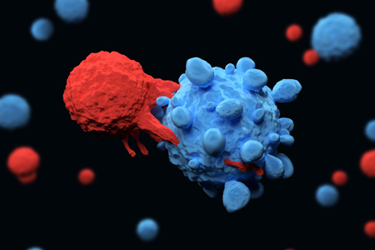Solid Tumors: The Next Frontier Of Cancer Immunotherapy

CAR T-cell therapy is a promising cancer treatment, but there are challenges when it comes to targeting solid tumors, including difficulties in getting the CAR T cells to the tumor, the heterogeneity of tumor antigens, and the complex microenvironment. To overcome these challenges, researchers are using advanced research models that mimic the human body.
Organ-on-a-Chip technology is one such model that emulates the architecture and functionality of human organs. Researchers have used this technology to study the efficacy of CAR T-cell therapy in non-small cell lung carcinoma (NSCLC). By co-culturing NSCLC cells with lung-specific vascular cells, they were able to mimic the journey of CAR T cells in the body. Additionally, the co-administration of a co-therapeutic alongside CAR T cells was modeled on-chip and showed improved migration to the tumor site. This technology has the potential to accelerate the development of CAR T-cell therapy for solid tumors.
With the use of advanced in vitro models like Organ-Chips, researchers are gaining a better understanding of CAR T-cell therapy in the context of solid tumors. This understanding can lead to the optimization of CAR T-cell design, the identification of biomarkers for patient selection, and the development of combination therapies that enhance the effectiveness of CAR T-cell therapy for solid tumors. Despite the challenges, progress is being made in improving the effectiveness of immunotherapy for solid tumors through the use of advanced research models.
Get unlimited access to:
Enter your credentials below to log in. Not yet a member of Drug Discovery Online? Subscribe today.
